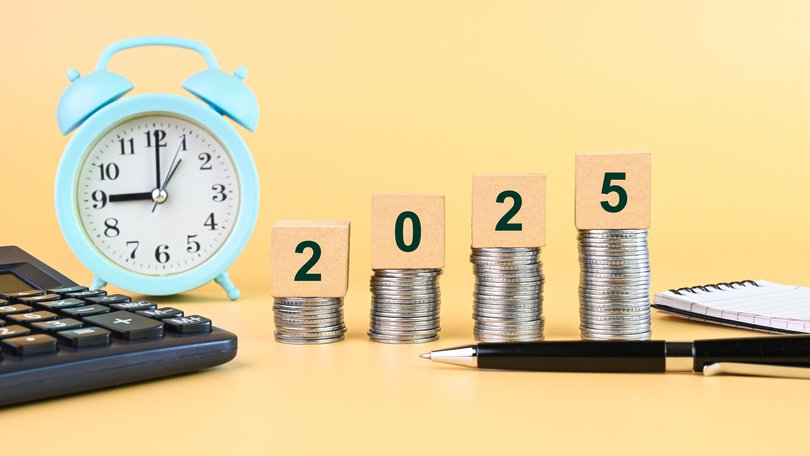Investing in the share market as early as possible is the key to overcoming financial paralysis
If you made a New Year’s resolution to get richer, here are the simple steps to get you there.

It’s officially the time of year when you get around to that thing you’ve been putting off.
And for millions of workers, that means coming to grips with their finances.
If you’ve been avoiding making additional contributions to your superannuation or opening a brokerage account to get started in share investing, you’re not alone.
Sign up to The Nightly's newsletters.
Get the first look at the digital newspaper, curated daily stories and breaking headlines delivered to your inbox.
By continuing you agree to our Terms and Privacy Policy.According to figures from the US, nearly half (48 per cent) of the adult population report owning no investable assets, according to a 2024 survey from Janus Henderson.
And for many, the reasoning behind the procrastination is simple: Investing is (seemingly) too complex.
It’s a pattern of thinking that, if not overcome, could cripple many young people financially, says Amos Nadler, founder of Prof of Wall Street and a PhD in behavioural finance and neuroeconomics.
“It’s a bias that we call ‘complexity aversion,’” he says. “And it’s the biggest barrier to building wealth for people who are not in markets or who have never invested before.”
Here’s how this cognitive bias could be costing you money.
The importance of overcoming complexity aversion
On a very basic level, people who put off doing essential financial tasks have the same fears as those who can’t bring themselves to start an exercise routine — they don’t want to make a mistake or feel foolish.
Just as someone might say they don’t know the first thing about how all that fancy gym equipment works, a financially avoidant person might say, “man, this is over my head, I’m just not a numbers person”, says Dr Nadler.
Feeling this way about money is tied closely with another common cognitive bias known as risk aversion.
Essentially, not only are you afraid you’ll screw up, but you fear that you’ll lose out on money you put time and effort into accumulating. And because fear of losing what you have can outweigh the joy of building wealth, you stay put.
The impulse is, “I’ve worked hard for it, and I’m risk averse. I’d rather just have the cash,” Dr Nadler says. “I know inflation is eating away at my cash, but the market so volatile, so I’m scared.”
But the need to start investing — especially among young people — extends beyond the need for your money to keep up with inflation. By procrastinating on this particular financial project, you’re losing what many experts call your most valuable asset: time. The longer you’re in the market, the more time your money has to grow at a compounding rate. For every year you delay getting started in the market, you potentially shave thousands of dollars off your future net worth.
Play around with an online compounding interest calculator, and you’ll likely discover that sitting on the sidelines for even a few years can have a massive effect on your long-term gains.
Consider a 20-year-old who invests $200 a month into a retirement portfolio that earns an annualised total return of 8 per cent. By the time she’s ready to retire at age 67, she’ll have $1.25 million saved.
If she starts at age 25, with all other conditions the same, her total drops to about $830,000. And if she puts things off until age 30, she’d retire with $547,000.
How to move past complexity aversion
So, how do you get started? You could always open a brokerage account or make additional contributions to your superannuation.
Designate how much of your salary to contribute to the account out of each pay cycle.
In the current financial year, you can contribute $30,000 of your pre-tax salary to your superannuation account (which includes personal and compulsory employer contributions).
That money is only taxed at 15 per cent. This means that not only will additional contributions boost your overall superannuation nest egg, you will also pay less income tax.
